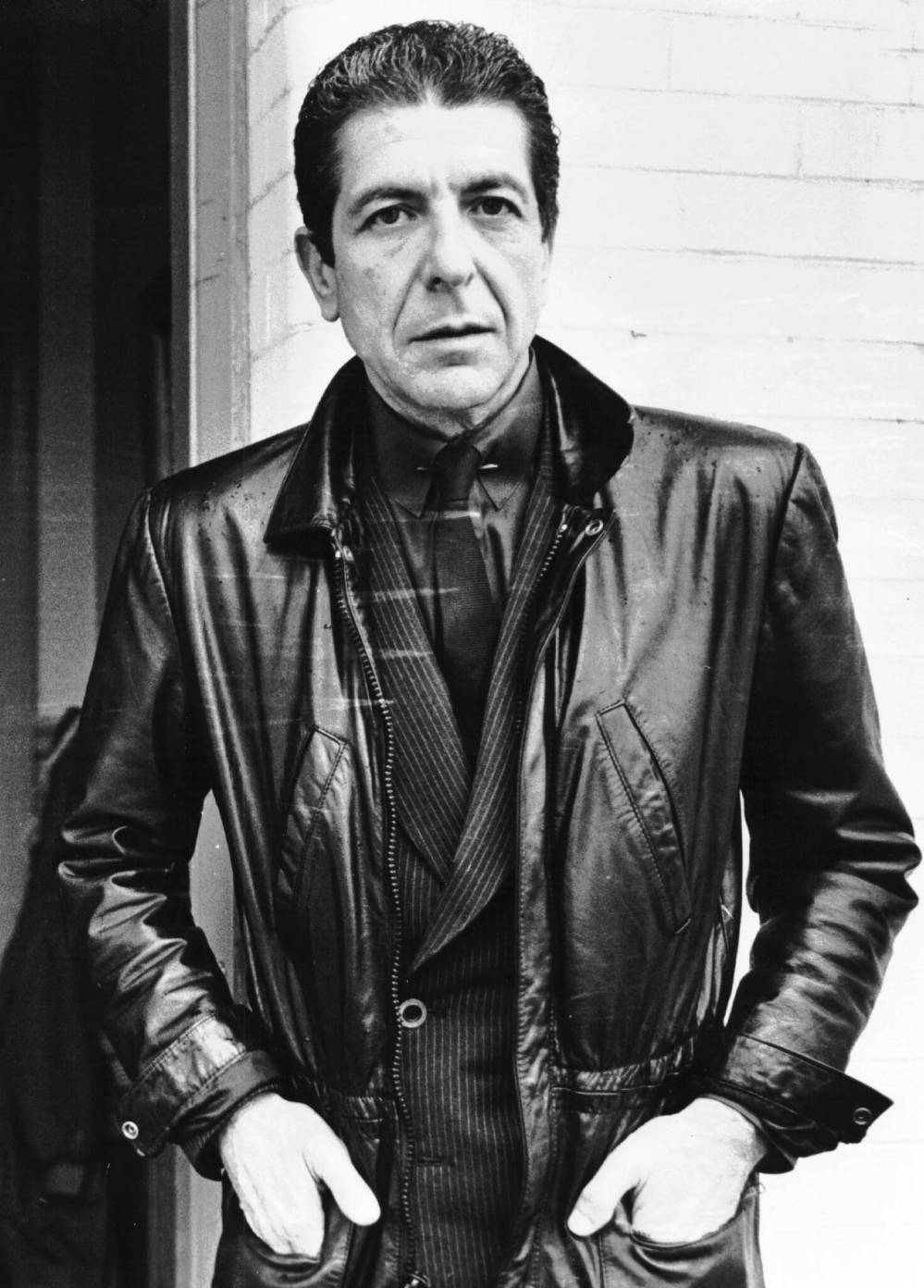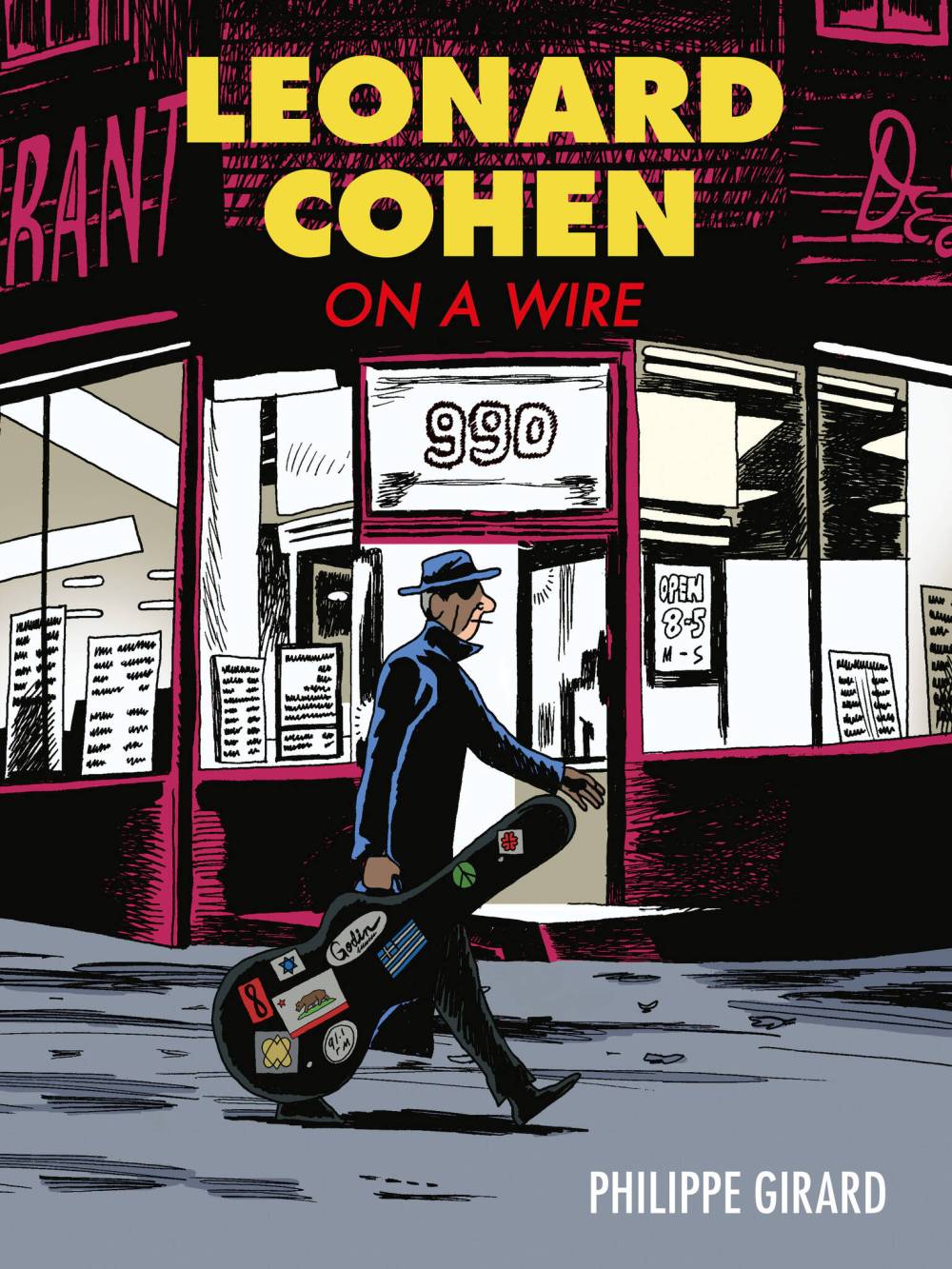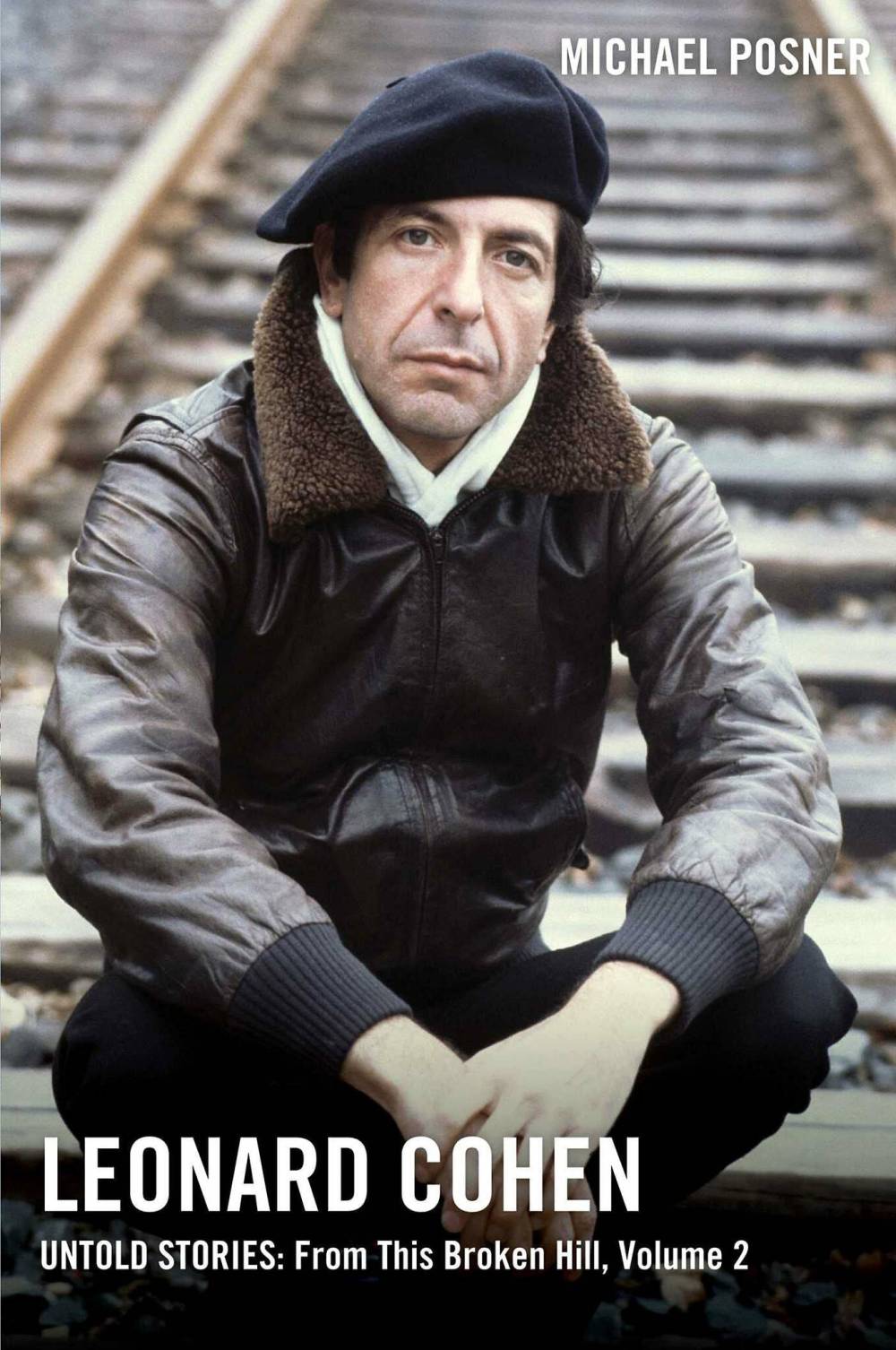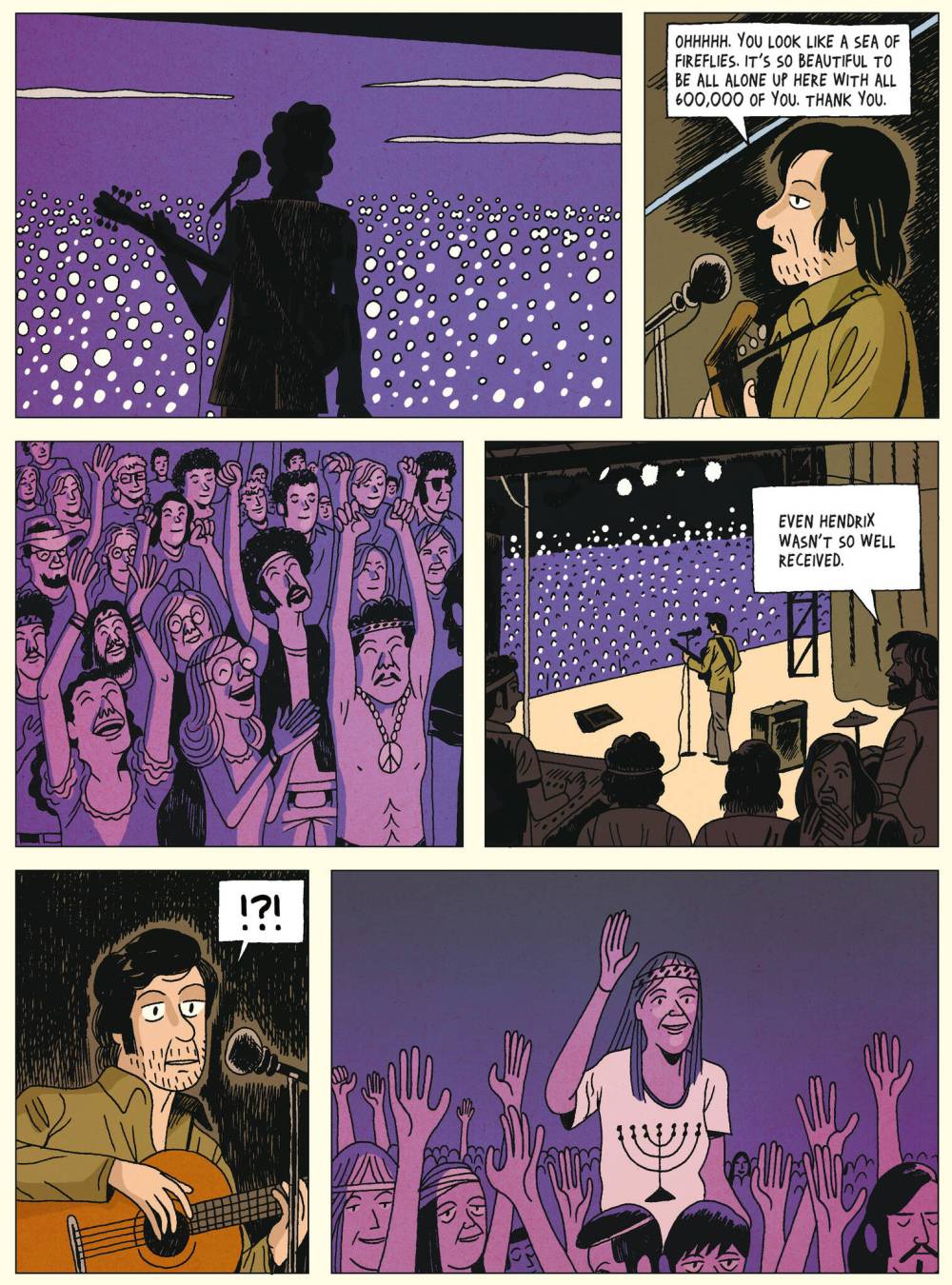Raising the bard
Cohen’s life and legacy explored in graphic novel, oral history
Advertisement
Read this article for free:
or
Already have an account? Log in here »
To continue reading, please subscribe:
Monthly Digital Subscription
$1 per week for 24 weeks*
- Enjoy unlimited reading on winnipegfreepress.com
- Read the E-Edition, our digital replica newspaper
- Access News Break, our award-winning app
- Play interactive puzzles
*Billed as $4.00 plus GST every four weeks. After 24 weeks, price increases to the regular rate of $19.00 plus GST every four weeks. Offer available to new and qualified returning subscribers only. Cancel any time.
Monthly Digital Subscription
$4.75/week*
- Enjoy unlimited reading on winnipegfreepress.com
- Read the E-Edition, our digital replica newspaper
- Access News Break, our award-winning app
- Play interactive puzzles
*Billed as $19 plus GST every four weeks. Cancel any time.
To continue reading, please subscribe:
Add Winnipeg Free Press access to your Brandon Sun subscription for only
$1 for the first 4 weeks*
*$1 will be added to your next bill. After your 4 weeks access is complete your rate will increase by $0.00 a X percent off the regular rate.
Read unlimited articles for free today:
or
Already have an account? Log in here »
Hey there, time traveller!
This article was published 13/11/2021 (1394 days ago), so information in it may no longer be current.
Five years after its benefactor’s death, the Leonard Cohen industry continues to churn out product, the latest being two Canadian-authored books that serve opposite purposes.
Quebec cartoonist Philippe Girard’s graphic novel is a satisfying and cogent biography aimed at the casual fan of the great Montreal poet and singer-songwriter.
Drawn in an impressively condensed 122 pages, Leonard Cohen: On a Wire (please forgive the dull title) touches most of the fabled moments of Cohenalia and some lesser ones as well.

At the other end of the concision spectrum is Toronto journalist (and Winnipeg native) Michael Posner’s second volume of Cohen oral history, Untold Stories: From This Broken Hill, Vol. 2.
On the heels of last year’s first volume, The Early Years, it drills down into Cohen’s exploits from 1971 to 1987. This covers his mid-30s, after his first flush of fame, until his early 50s, arguably his professional nadir.
Posner’s subtitle is a phrase from the 1984 song If It Be Your Will. He has transcribed several hundred interviews with those, famous and obscure, who knew Cohen intimately or just crossed paths with him.
He then cuts, pastes and arranges them chronologically, with bits of his own narration added to tie the pieces together.
The book is less accomplished than Girard’s artistically, because it contains so much repetitive and extraneous verbiage, and also because it buries its over-riding biographical arc amid such granular detail.
But it does deliver to Cohen obsessives and perhaps literary academics a window into Cohen’s private life — especially the seamy side of it — marked as it was by depression, substance abuse and his often predatory sex addiction.

More than 20 women have gone public with Posner to recall their extended affairs with Cohen during this period. Almost all were in their early 20s, sometimes half the age of the charismatic but commitment-phobic boulevardier, who was often sleeping with two or more other “little darlings” at the same time.
“He had really bad breath, so he had gallons of Listerine in his bathroom,” notes Andreé Pelletier, daughter of the late Quebec politician Gérard Pelletier, whom Cohen seduced in 1976 when she was 25 and he was 41.
“We never talked about Suzanne or Marianne… He told me he had kids, but it was irrelevant to anything.”
In the early 1980s, Cohen had a previously unpublicized five-year affair with a Costa Rican model and artist, Gabriela Valenzuela, beginning when she was 24. Fluent in Spanish, she helped him translate a Federico García Lorca poem that became his 1986 song Take This Waltz.
She also inspired the “tied to the kitchen chair” verse in Cohen’s most covered song, Hallelujah, after she gave him a home haircut that morphed into something more X-rated.
Cohen dumped Valenzuela in 1986 after she told him she was three months’ pregnant with his child, already named “September Cohen,” whom she then reluctantly aborted.

“Leonard had the ability to go completely cold on a dime,” observes his longtime friend, the filmmaker Barrie Wexler, “particularly when it threatened his freedom.”
Unlike Posner, most of what cartoonist Girard chooses to draw has entered into the public domain: Cohen’s affluent childhood in Montreal: his early success as a poet and hipster; his expatriate years in London and on the Greek island of Hydra; and his first songs being taken up by the likes of singer Judy Collins and producer John Hammond in New York a few years later.
Needless to say, Girard also glories in Cohen’s conquests as a ladies’ man. His well-known relationships with Marianne Ihlen, Joni Mitchell, Janice Joplin, Suzanne Elrod (the mother of his two children, Adam and Lorca), Dominique Isserman and Rebecca DeMornay are lovingly and, in a couple cases, explicitly depicted. No wonder Cohen needed to rest in a Buddhist monastery for four years in the 1990s.
Presumably born into pure-laine Québécois Catholic stock, Girard deserves credit for both his understanding and portrayal of the centrality of Judaism in Cohen’s life and work.
The Jewish world view is even more pronounced in Untold Stories. But for Posner, a tribe member himself, this aspect comes naturally and is likely an important part of what attracted him to the project.
Cohen was 82 when he died in November 2016. Since then there has been no end of Cohen biographies, memoirs and documentaries. Posner’s concluding volume is a year away. A biopic, Posner predicts, will not be long in coming.

But you could argue that Girard’s heavily abridged version of the life is truer to the spirit of a poet and lyricist who agonized over paring his own lines to the bone.
Hallelujah indeed.
Morley Walker is a retired Free Press journalist.
History
Updated on Saturday, November 13, 2021 11:31 AM CST: Changes subheadline: from "biography" to "oral history"


